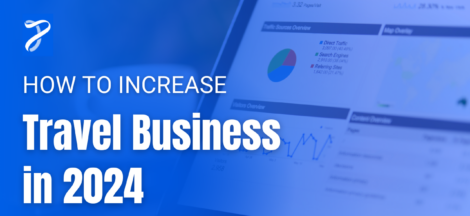In the ever-evolving landscape of the travel industry, staying competitive and offering personalized experiences to travelers is paramount. One technology that’s been making significant waves in this sector is Artificial Intelligence (AI). AI has the potential to revolutionize the way travel agencies operate, offering enhanced customer service, streamlining operations, and boosting revenue. In this guide, we will explore how to implement AI in your travel agency effectively.
Understanding AI in the Travel Industry
Artificial Intelligence encompasses a range of technologies, including machine learning, natural language processing (NLP), and data analytics. In the travel industry, AI can be applied in various ways to improve customer experience and operational efficiency:
- Personalized Recommendations
AI algorithms can analyze customer data to provide personalized travel recommendations. By understanding a traveler’s preferences, past bookings, and behavior, AI can suggest tailored itineraries, destinations, and travel options. - Chatbots and Virtual Assistants
Implementing chatbots powered by AI can significantly enhance customer support. They can handle routine inquiries, booking confirmations, and even assist with simple bookings 24/7, providing immediate responses to customer queries. - Dynamic Pricing
AI can help agencies optimize pricing strategies by analyzing market demand, competitor pricing, and historical booking data. This allows for real-time adjustments to prices, maximizing revenue. - Predictive Analytics
By harnessing AI-driven predictive analytics, agencies can forecast travel trends, peak booking times, and even potential disruptions, allowing for better resource allocation and planning. - Steps to Implement AI in Your Travel Agency
Now that we understand the potential applications, let’s delve into the steps to implement AI effectively: - Define Your Objectives
Begin by identifying specific areas where AI can add value to your agency. Whether it’s improving customer service, automating repetitive tasks, or optimizing pricing, clear objectives are crucial. - Data Collection and Integration
AI relies on data. Ensure that your systems collect and store relevant data efficiently. This includes customer data, booking history, and supplier information. Integration with AI platforms often requires structured data accessible through APIs. - Choose the Right AI Tools
Select AI tools or platforms that align with your objectives. There are various AI providers specializing in the travel industry. Look for those that offer customization options to tailor AI solutions to your agency’s unique needs. - Training and Integration
After selecting the tools, provide training to your staff to use them effectively. Ensure seamless integration with your existing systems and processes. - Implement AI in Customer Service
Integrate AI-powered chatbots or virtual assistants into your website and communication channels. Ensure they can handle routine inquiries and assist in bookings. Monitor their performance and continuously improve their responses. - Pricing Optimization
Utilize AI algorithms for dynamic pricing. Continuously analyze market data to adjust prices and maximize revenue. Implement automated pricing strategies to remain competitive. - Personalized Recommendations
Leverage AI to offer personalized travel recommendations to customers. Utilize customer data to suggest destinations, accommodations, and activities that align with their preferences. - Monitor and Adapt
Regularly monitor the performance of your AI implementations. Collect feedback from customers and staff to make improvements. AI is a dynamic field, and staying up-to-date with the latest advancements is essential.
SEO and AI Implementation
As you embark on your AI journey, don’t forget the importance of SEO optimization. Ensure your website and content are SEO-friendly to attract organic traffic. Use relevant keywords related to AI in travel and provide valuable information to your readers. Tools like Yoast can help optimize your content for search engines.
In conclusion, implementing AI in your travel agency can be a game-changer, offering enhanced customer experiences, operational efficiency, and increased revenue. However, it’s essential to carefully plan and execute the integration, aligning it with your agency’s specific goals and needs. By following these steps and keeping SEO optimization in mind, you can successfully harness the power of AI to thrive in the competitive travel industry.
If you’re ready to take your travel agency to the next level, consider the possibilities that AI can offer and start your journey toward a more innovative and customer-centric approach.




 Portugal’s Architectural Marvels: A Tour Of Castles, Palaces, And Historic Sites
Portugal’s Architectural Marvels: A Tour Of Castles, Palaces, And Historic Sites